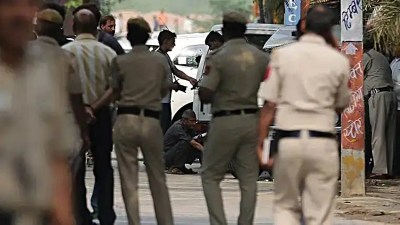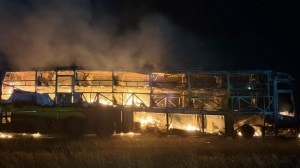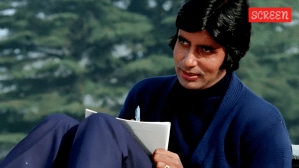Govt asked to hurry up on unleaded fuel
NEW DELHI, April 19: The World Bank, the Delhi Government and the Central Pollution Control Board (CPCB) have recommended that the Centre sp...

NEW DELHI, April 19: The World Bank, the Delhi Government and the Central Pollution Control Board (CPCB) have recommended that the Centre speed up the introduction of unleaded petrol and increase taxation on vehicles to check the growing menace of air pollution.
A joint workshop by the three said that eliminating lead from gasoline in Delhi by end of the year, while keeping the benzene levels down, would go a long in checking burgeoning vehicular pollution in the Capital. Transport minister Rajendra Gupta, who was present at the workshop, assured the participants that action would be taken soon.
Gupta said they had to look into the delivery system and the availability of the unleaded fuel, but in principle the government was committed to take action.
On the issues of unleaded fuels, several people had expressed fears that older vehicles would not be able to use unleaded petrol and would suffer a loss of power in operation. Jitu Shah of the World Bank dismissed these apprehensions saying that there was no reason why there should be any drawbacks provided the fuel is of the right octance.
Speaking to Express Newsline, Dr Krishan Kumar, executive director engineering of Maruti Udyog Ltd, said all their vehicles, even those manufactured before unleaded fuel was introduced, would be able to run on lead-free fuel. “We were the first company to say that our vehicles can run on unleaded fuel, but did not advertise it as we had to announce this in tandem with the petroleum ministry’s readiness.”
In addition, the workshop stressed that increased taxation for private vehicle would raise funds which could be used for public transport and improving air quality. It also recommended a fleet of cleaner fuel cell buses along with a few corridors exclusively for buses and non-motorised vehicles.
“This could be done on an experimental scale and then depending on their efficacy expanded,” said Shah. For taxis, the workshop said, only the newer and cleaner models should be allowed.
Fuel quality and composition also needs to closely monitored and studied. At present the refineries do not give information on the exact composition of fuel which was essential for any planning, the workshop stressed. It recommended pilot project for independent lubricant system, smokeless lube oil and catalytic converters.
Shah said the Bank’s role was to act as a facilitator and would extend support to the authorities in tackling this problem. The project to decrease vehicular pollution could possibly be integrated with ongoing Bank projects on capacity building of the state highways project, he suggested. In addition, there was the proposed Delhi Urban Environment and Infrastructure Improvement project.



- 01
- 02
- 03
- 04
- 05




























